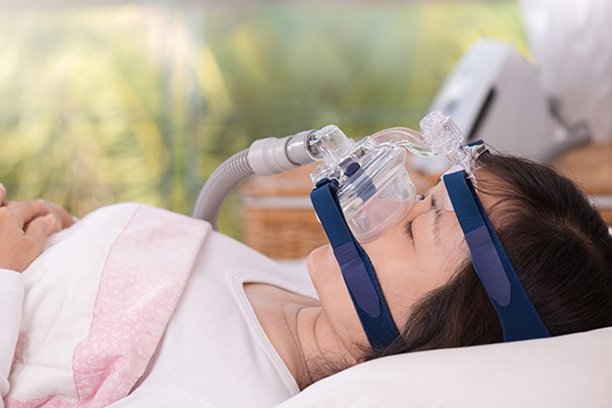New recommendations suggest there is limited evidence supporting screening adults without symptoms for obstructive sleep apnea. Photo courtesy of Penn Medicine
March 29 (UPI) — Only adults with symptoms of obstructive sleep apnea such, as snoring, should be screened for the disorder, at least based on current scientific evidence, according to recommendations released Tuesday.
Not enough evidence exists to recommend for or against screening for sleep apnea in adults ages 18 and older who do not have signs or symptoms of the condition, members of the U.S. Preventive Services Task Force wrote.
This also applies to adults who are not aware of their symptoms or who do not report symptoms to their doctors, they said.
The recommendations were posted Tuesday on the website for the task force, which is an independent, volunteer panel of national experts in prevention and evidence-based medicine, according to its mission statement.
The group regularly makes recommendations on clinical preventive services such as disease screenings, counseling services and preventive medications, it says.
“Most people don’t discuss sleep apnea symptoms with their primary care clinician,” task force member Martha Kubik said in a press release.
“Because the evidence is unclear on whether screening for sleep apnea in people without signs or symptoms is beneficial, healthcare professionals should use their judgment to guide their decision to screen,” said Kubik, who is a professor of nursing at George Mason University.
In obstructive sleep apnea, a person’s airway becomes blocked while they sleep, causing them to repeatedly stop breathing, according to the Sleep Foundation.
Research has linked untreated sleep disorders such as obstructive sleep apnea with heart disease, stroke and diabetes, among other health complications.
The condition affects about 20% of adults in the United States, and about 90% of them go undiagnosed, and therefore untreated, studies suggest.
People at increased risk for sleep apnea include men, post-menopausal women, adults ages 40 to 70 year, those who are overweight or obese and those with a physical irregularity that could affect their upper airway and breathing, the Sleep Foundation says.
Black, Native American, and Latino adults have higher rates of sleep apnea compared with White adults, research indicates.
The most common symptoms of the condition are loud snoring, choking or gasping during sleep and excessive daytime sleepiness, or difficulty staying awake during the day, the Sleep Foundation says.
While screening those with these symptoms can result in a diagnosis and needed treatment, more research is needed to determine whether screening people without symptoms can improve their health, according to the U.S. Preventive Services Task Force.
“Having sleep apnea negatively affects quality of life and is linked to health issues such as heart disease and strokes,” task force member Dr. Gbenga Ogedegbe said in the press release.
“Unfortunately, there’s limited evidence on whether screening people who do not have signs or symptoms of sleep apnea leads to improved health, so we are calling for more research,” said Ogedegbe, director of the Institute for Excellence in Health Equity at NYU Langone Health.
